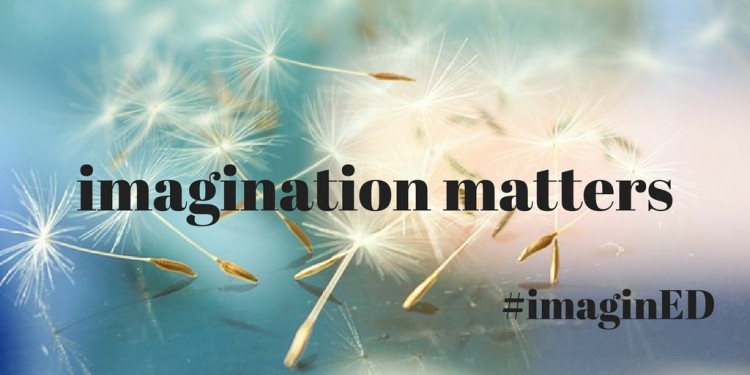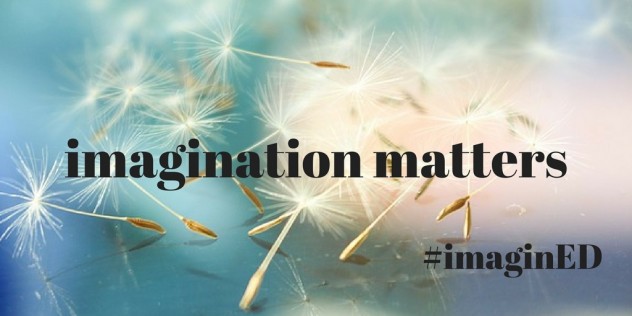(Snippets from my recent post at Getting Smart: “Two Key Points For Understanding Imagination”)
Here’s the odd thing…
I have never actually met anyone who believes that being imaginative is a useless quality or that the imagination is a useless feature of the human mind. In reality, we constantly seem to acknowledge its importance. We want it for our kids—we admire it in others. And yet we neglect it in schools.
Understanding Imagination’s Role
I like psychologist Lev Vygotsky’s take on imagination. He said that imagination is a “higher psychological function connected to emotion and to all intellectual activity.”
“…imagination is as necessary in geometry as it is in poetry. Everything that requires artistic transformation of reality, everything that is connected with interpretation and construction of something new, requires the indispensable participation of imagination”
&
“…imagination, as the basis of all creative activity, is an important component of absolutely all aspects of cultural life, enabling artistic, scientific, and technical creation alike”
(…)
Two Key Points for Educators
1. The imagination plays a role in all learning—all people, all places.
2. There are particular cognitive tools we employ as imaginative beings to make sense of the world. These are tools educators can employ to make what they are teaching meaningful, memorable and inspiring.
The tools in the toolkit of the imaginative educator include such things as anomalies, narrative, agency, humanization, mystery, wonder, story-form, imagery, rhythm & pattern, humour, extremes and limits of reality and many more.
(Read the full article: “Two Key Points For Understanding Imagination”)
Please SHARE if you value imagination in ALL education. LEAVE a comment–what do you to do engage your students’ imaginations?
References
Vygotsky, L.S. (1998). The collected works of L.S. Vygotsky, vol. 5 (R. W. Rieber, Ed.) New York: Plenum
Vygotsky, L.S. (2003). Imagination and creativity in childhood. Journal of Russian and East European Psychology, 42(1), 7-97.




Three cheers for Mr. Vygotsky. Thanks for sharing his words. Not too long before reading your blog, I read the article at this link — https://paw.princeton.edu/article/skin-seas-words-and-act-noticing. My brain has since been drawing lines between Mr. Klingenborg’s observations and your thoughts on the imagination’s creating and connecting powers.
Thanks for sending me this link Brian. It’s a really evocative article–I appreciate how it shows the ongoing, everyday and essential activity of the imagination in learning that most impacts us. Imagination matters for memorability. BUT it’s also an ongoing force in our lives. Mixing metaphors like mad here–blame lack of coffee.
Imagination is so important to engage in education! My students always enjoy using stories, characterizations, or abstract descriptions of how the music should sound rather than the typical shorter, longer, louder, or softer. It seems to be most effective when they are paired together – explicit instructions so they understand what is being asked of them, and an imaginative story to help them remember!
Thanks for your comment Aubrey. Sounds like you have tons of tools of imagination at work in your teaching. Your students are lucky!
I used to have a poster up in my classroom which quoted Einstein, “Imagination is more important than knowledge.” I can’t tell you how good it is to see someone championing this cause.
Yay! A supporter! There are lots of us out there–if we could only get talking. So please spread the word. We need more imagination in school for sure–and we need knowledge (learned in engaging ways)–they are a team!